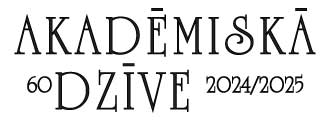Latvian voter turnout and preferences in the 2024 European Parliament elections
DOI:
https://doi.org/10.22364/adz.60.05Keywords:
EP elections, voter, political parties, choiceAbstract
The article analyzes the activity and choices of Latvian voters in the 2024 European Parliament elections. The European Parliament is the only directly elected international institution in the world, allowing every citizen of the European Union to influence the future of Europe as a whole. In Latvia, 33.82% of eligible voters participated in the 2024 elections, reflecting a slowdown in the previously observed trend of declining participation, which can be cautiously viewed as a positive development. The 2024 elections took place during geopolitical crises, including the ongoing war between Russia and Ukraine, influencing voter decisions. The results show that voters tended to support political parties with experience and/or well-known candidates. This benefited parties already represented in the European Parliament, such as New Unity and the National Alliance. It also gave newcomers like the United List and the Progressives their first opportunity to enter the EP. It is noteworthy that the success of the Progressives is largely driven by the demand from younger voters for a new type of left-wing party associated with social justice, ecological justice, and equal rights for all ‒ a modern, patriotic, leftist movement. Voters’ choices reflect a focus on geopolitical and national interests, especially highlighting security and stability which dominate the political discourse. Voters consider the performance of national political parties as sufficiently successful and continue to place their trust in them. This suggests that no significant changes in Latvia’s political landscape are expected in the near future, including the upcoming 2025 municipal elections.
References
Bartels, L. M. (2008) Unequal Democracy: The Political Economy of the New Gilded Age. Princeton: Uni-versity Press.
Bux, U.; Maciejewski, M. (2024) The European Parliament: historical background. The EU at work Euro-pean Union institutions and bodies. https://www.europarl.europa.eu/factsheets/en/sheet/11/the-european-parliament-historical-background (skatīts 24.08.2024.).
Centrālā vēlēšanu komisija (20.03.2023.) Vēlētājiem. Eiropas Parlamenta vēlēšanas. https://www.cvk.lv/lv/eiropas-parlamenta-velesanas (skatīts 25.08.2024.).
Centrālā vēlēšanu komisija (09.06.2024.) Eiropas Parlamenta vēlēšanas 2024. Aktivitāte. https://epv2024.cvk.lv/aktivitate (skatīts 25.08.2024.).
Cunningham, K.; Hix, S.; Dennison, S.; Learmonth, I. (2024) A Sharp Right Turn: A Forecast for the 2024 European Parliament Elections. European Council on Foreign Relations. ECFR. https://ecfr.eu/publication/a-sharp-right-turn-a-forecast-for-the-2024-european-parliament-elections/ (skatīts 25.08.2024.).
Dahl, R. A. (1989) Democracy and Its Critics. New Haven and London: Yale University Press.
Diena (2024) Vislielākie tēriņi EP vēlēšanu aģitācijai bijuši AS, ZZS un “Stabilitātei”. Diena (14.06.2024.). https://www.diena.lv/raksts/latvija/zinas/vislielakie-terini-ep-velesanu-agitacijai-bijusi-as-zzs-un-_stabilitatei_-14319322 (skatīts 25.08.2024.).
Downs, A. (1957) An Economic Theory of Democracy. Harper & Row.
Eiropas Parlaments (2024) Eiropas 2024. gada vēlēšanas. Vēlēšanu rezultāti. Dalībvalstu rezultāti. https://results.elections.europa.eu/lv/nacionalie-rezultati/latvija/2024-2029/ (skatīts 25.08.2024.).
European Parliament (2024a) About Parliament. https://www.europarl.europa.eu/about-parliament/en (skatīts 25.08.2024.).
European Parliament (2024b) Comparative Tool > 2024 > European Election Results > European Parlia-ment Election Results. https://results.elections.europa.eu/en/tools/comparative-tool/ (skatīts 25.08.2024.).
Hix, S. (2005) The Political System of the European Union. 2nd ed. Palgrave Macmillan.
Hix, S.; Høyland, B. (2022) The Political System of the European Union. 4th ed. Bloomsbury Publishing.
Kroet, C.; Schickler, J. (2024) EU Elections: Meet the Winners and Losers in Brussels and Across Europe. Euronews (10.06.2024.). https://www.euronews.com/my-europe/2024/06/10/eu-election-results-hang-in-the-balance-as-polls-close (skatīts 25.08.2024.).
Laganovskis, G.; Brikmane, E. (2024) Eiropas Parlamenta vēlēšanas. Kā sadala mandātus? LV portāls
(07.06.2024.). https://lvportals.lv/skaidrojumi/364461-eiropas-parlamenta-velesanas-ka-sadala-mandatus-
(skatīts 25.08.2024.).
Maurice, E. (2024) 2024 EU Elections Results: Limited Change, Great Challenges. European Policy Cen-tre. https://www.epc.eu/en/Publications/2024-EU-elections-results-Limited-change-great-challenges~
b9b2c (skatīts 25.08.2024.).
Neugent, N. (2017) The Government and Politics of the European Union. 8th ed. Bloomsbury Publis-hing. DOI: https://doi.org/10.1057/978-1-137-45410-2_24
Norris, P. (2011) Democratic Deficit: Critical Citizens Revisited. Cambridge: Cambridge University Press. DOI: https://doi.org/10.1017/CBO9780511973383
Downloads
Published
Issue
Section
License
Copyright (c) 2024 Latvijas Universitāte

This work is licensed under a Creative Commons Attribution-NonCommercial 4.0 International License.


